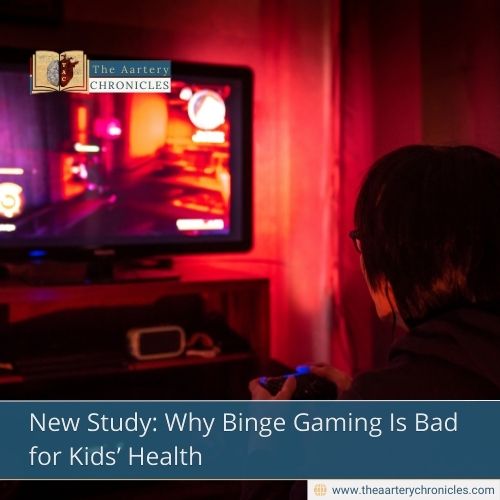

New Study: Why Binge Gaming Is Bad for Kids’ Health
Binge gaming in kids is increasingly being recognised as more than just a pastime; it may be tied to real health and developmental concerns. A new study from Hong Kong shows that children and teenagers who engage in long, uninterrupted gaming sessions face higher risks of depression, anxiety, poor sleep, and struggles at school. Importantly, these risks appear to differ between boys and girls.
Why Binge Gaming Matters
Internet gaming is now a central part of youth culture. Health experts have long noted that excessive play can sometimes develop into Internet Gaming Disorder (IGD), a condition listed for further study in the DSM-5 and already recognised as a formal diagnosis in the ICD-11.
East Asia, in particular, reports some of the highest rates of gaming-related issues, with adolescents considered especially vulnerable. Past research has already shown that prolonged gaming can lead to poor sleep, low mood, and anxiety.
Inside the Hong Kong Study
The study, published in PLOS One, surveyed 2,592 primary and secondary school students across nine Hong Kong schools. Participants, with an average age of 12, completed questionnaires about their gaming habits, emotional health, and school performance.
One key question asked whether students had played internet games for five or more consecutive hours in the past month. They also answered checklists covering symptoms of Internet Gaming Disorder
Key Findings: Prevalence and Gender Differences
- Overall prevalence: About 31.7% of all students reported binge gaming.
- By gender: Rates were higher in boys (38.3%) compared with girls (24%).
- Sleep quality: Girls were more likely than boys to report poor sleep (65.5% vs. 58.6%).
- Mental health: No major gender difference was found in overall levels of depression, anxiety, or stress, but the effects of binge gaming showed different patterns.
Impact on Boys and Girls
- For boys: Binge gamers are more likely to exhibit higher levels of gaming disorder, depression, anxiety, stress, and poor sleep compared to boys who do not binge game.
- For girls: The picture was even broader. In addition to higher levels of gaming disorder, depression, anxiety, and stress, female binge gamers also reported greater loneliness, weaker social support, lower confidence in school performance, and poorer sleep quality
What This Means for Parents and Educators
The researchers emphasise that binge gaming in kids could be used as a warning sign for deeper issues. Rather than focusing only on total weekly gaming hours, parents and teachers should also pay attention to patterns of prolonged, consecutive play.
Because the effects vary between boys and girls, prevention and support strategies should be gender-sensitive. For example:
- Encouraging balanced gaming habits and regular breaks.
- Screening for emotional and sleep-related problems in students who binge game.
- Providing stronger social and academic support for girls who may be at risk of loneliness.
Conclusion
This research underscores that binge gaming in kids is not just about screen time; it can be a marker for wider challenges in mental health, social life, and school performance. Early identification and family awareness may help reduce risks and support healthier development for young people in today’s gaming-driven culture.
Source: Inputs from various media Sources
I’m a pharmacist with a strong background in health sciences. I hold a BSc from Delhi University and a pharmacy degree from PDM University. I write articles and daily health news while interviewing doctors to bring you the latest insights. In my free time, you’ll find me at the gym or lost in a sci-fi novel.
- Priya Bairagi
- Health News and Updates,People Forum
- 2 September 2025
- 22:00








